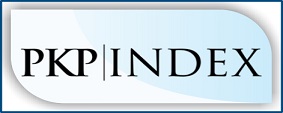Pengaruh Model Pembelajaran Kooperatif Tipe Think-Talk-Write terhadap Kemampuan Komunikasi Matematis Siswa: Studi Meta-Analisis
Abstract
Salah satu kemampuan matematis yang perlu dikembangkan oleh siswa adalah kemampuan komunikasi matematis. Salah satu model pembelajaran yang tepat untuk meningkatkan kemampuan komunikasi matematis adalah Model Pembelajaran Kooperatif Tipe Think-Talk-Write. Melalui Google Scholar, Portal Garuda, ERIC, SAGE Publishing dan Springer Publishing, penulis memperoleh 114 artikel jurnal maupun prosiding yang membahas pengaruh penerapan Model Pembelajaran Kooperatif Tipe Think-Talk-Write terhadap kemampuan komunikasi matematis siswa, sehingga perlu dilakukan analisis terhadap kumpulan studi tersebut untuk mengetahui seberapa besar pengaruh penerapan Model Pembelajaran Kooperatif Tipe Think-Talk-Write terhadap kemampuan komunikasi matematis siswa dengan menggunakan desain penelitian meta-analisis. Dari keseluruhan artikel yang penulis peroleh, terdapat 19 artikel yang memenuhi kriteria inklusi untuk dianalisis menggunakan aplikasi Comprehensive Meta-Analysis sehingga diperoleh besar ukuran efek gabungan. Berdasarkan interpretasi dari ukuran efek gabungan tersebut, dapat disimpulkan bahwa secara keseluruhan penerapan Model Pembelajaran Kooperatif Tipe Think-Talk-Write memberikan pengaruh yang kuat terhadap kemampuan komunikasi matematis siswa. Adapula karakteristik studi yang dianalisis dalam penelitian ini meliputi tahun penelitian, jenjang pendidikan dan ukuran sampel. Secara statistik, diperoleh bahwa penerapan Model Pembelajaran Kooperatif Tipe Think-Talk-Write untuk meningkatkan kemampuan komunikasi matematis siswa hanya dipengaruhi oleh tahun penelitian.
Downloads
References
Astuti, A., & Leonard. (2015). Peran Kemampuan Komunikasi Matematika Terhadap Prestasi Belajar Matematika Siswa. Jurnal Formatif, 2(2), 102–110.
Borenstein, M., Hedges, L. V., Higgins, J. P. T., & Rothstein, H. R. (2009). Introduction to Meta-Analysis. Chicester: John Wiley & Sons, Ltd.
Borenstein, M., Hedges, L. V., Higgins, J. P. T., & Rothstein, H. R. (2010). A Basic Introduction to Fixed-Effect and Random-Effects Models for Meta-Analysis. Research Synthesis Methods, 1(2), 97–111. DOI: https://doi.org/10.1002/jrsm.12
Capar, G., & Tarim, K. (2015). Efficacy of the Cooperative Learning Method on Mathematics Achievement and Attitude: A Meta-Analysis Research. Educational Sciences: Theory & Practice, 15(2), 553–559. DOI: https://doi.org/10.12738/estp.2015.2.2098
Coe, R. (2002). It ’s the Effect Size, Stupid. What Effect Size Is and Why It Is Important. Paper presented at the British Educational Research Association annual conference, Exeter.
Cohen, L., Manion, L., & Morrison, K. (2007). Research Methods in Education 6th Edition. New York: Taylor & Francis e-Library.
Fritz, C. O., Morris, P. E., & Richler, J. J. (2012). Effect Size Estimates: Current Use, Calculations, and Interpretation. Journal of Experimental Psychology: General, 141(1), 2–18. DOI: https://doi.org/10.1037/a0024338
Greenhouse, J. B., & Iyengar, S. (2009). Sensitivity Analysis and Diagnostics. In H. Cooper, V. L. Hedges, & J. C. Valentine (Ed.), The Handbook of Research Synthesis and Meta-Analysis 2nd Edition, 417–433. New York: Russell Sage Foundation.
Hedges, L. V. (2009). Statistical Considerations. In H. Cooper, L. V. Hedges, & J. C. Valentine (Ed.), The Handbook of Research Synthesis and Meta-Analysis 2nd Edition, 37–47. New York: Russell Sage Foundation.
Johnson, D. W., & Johnson, R. T. (2014). Cooperative Learning in 21st Century. Anales de Psicología, 30(3), 841–851. DOI: https://doi.org/10.6018/analesps.30.3.201241
Juandi, D., & Tamur, M. (2021). The Impact of Problem-Based Learning Toward Enhancing Mathematical Thinking : A Meta-Analysis Study. Journal of Engineering Science and Technology, 16(4), 3548–3561.
Jusniani, N., Setiawan, E., & Inayah, S. (2020). Secondary School Students ’ Mathematical Communication Through Think-Talk-Write (Ttw) Learning Model and Interactive Media. Journal of Physics: Conference Series, 1477(4). DOI: https://doi.org/10.1088/1742-6596/1477/4/042039
Laamena, C. M., Ngilawajan, D. A., & Layn, I. S. (2020). Perbedaan Hasil Belajar Siswa Yang Diajarkan dengan Dua Model Pembelajaran Kooperatif (Studi Komparasi Model Pembelajaran Kooperatif Tipe Think Talk Write dan Think Pair Share Pada Siswa Kelas VII MTs Al-Irsyad Hutawa dalam Mempelajari Materi Operasi Hitung Bentuk Aljabar. Jar-Juir Jargaria (3J) Jurnal Sosial, Sains & Humaniora, 1(1), 45–49.
Lomibao, L. S., Luna, C. A., & Namoco, R. A. (2016). The Influence of Mathematical Communication on Students’ Mathematics Performance and Anxiety. American Journal of Educational Research, 4(5), 378–382. DOI:
https://doi.org/10.12691/education-4-5-3
Muhali. (2019). Pembelajaran Inovatif Abad Ke-21. Jurnal Penelitian dan Pengkajian Ilmu Pendidikan: e-Saintika, 3(2), 25–50. DOI: https://doi.org/10.36312/e-saintika.v3i2.126
Nelson, J. P. (2015). Meta-analysis : Statistical Methods. In R. J. Johnston, J. Rolfe, R. S. Rosenberger, & R. Brouwer (Ed.), Benefit Transfer of Environmental and Resource Values, 329–356. Berlin: Springer. DOI: https://doi.org/10.1007/978-94-017-9930-0
Retnawati, H., Apino, E., Kartianom, Djidu, H., & Anazifa, R. D. (2018). Pengantar Analisis Meta. Yogyakarta: Parama Publishing.
Sa’diyah, K. U., Ridlo, S., & Wardono. (2019). Think Talk Write ( TTW ) Learning Model by Using Realia Towards Mathematical Communication Ability of Elementary School Students. Journal of Primary Education, 8(3), 254–261. DOI: https://doi.org/10.15294/jpe.v8i3.26613
Shah, A., Jones, M. P., & Holtmann, G. J. (2020). Basics of Meta-Analysis. Indian Journal of Gastroenterology, 39(5), 503–513. DOI: https://doi.org/10.1007/s12664-020-01107-x
Shelby, L. B., & Vaske, J. J. (2008). Understanding Meta-Analysis : A Review of the Methodological Literature. Leisure Sciences: An Interdisciplinary Journal, 30(2), 96–110. DOI: http://dx.doi.org/10.1080/01490400701881366
Tamur, M., Juandi, D., & Kusumah, Y. S. (2020). The Effectiveness of the Application of Mathematical Software in Indonesia : A Meta-Analysis Study. International Journal of Instruction, 13(4), 867–884. DOI: https://doi.org/10.29333/iji.2020.13453a
Turgut, S., & Turgut, I. G. (2018). The Effects of Cooperative Learning on Mathematics Achievement in Turkey: A Meta-Analysis Study. International Journal of Instruction, 11(3), 663–680. DOI: https://doi.org/10.12973/iji.2018.11345a
Umar, W. (2012). Membangun Kemampuan Komunikasi Matematis dalam Pembelajaran Matematika. Infinity Jurnal Ilmiah Program Studi Matematika STKIP Siliwangi Bandung, 1(1).
Wilson, D. B. (2009). Systematic Coding. In Harris Cooper, L. V. Hedges, & J. C. Valentine (Ed.), The Handbook of Research Synthesis and Meta-Analysis 2nd Edition, 159–176. New York: Russell Sage Foundation.
Yazidi, A. (2014). Memahami Model-Model Pembelajaran dalam Kurikulum 2013 (The Understanding of Model of Teaching in Curriculum 2013). Jurnal Bahasa Sastra dan Pembelajarannya, 4(1), 89–95.
Copyright (c) 2022 Nurmala Setianing Putri, Dadang Juandi, Al Jupri

This work is licensed under a Creative Commons Attribution-ShareAlike 4.0 International License.



1.jpg)














